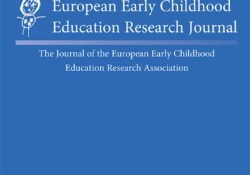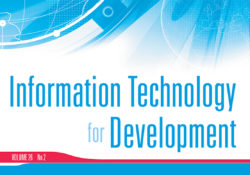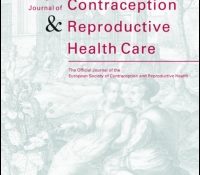eric.ed.gov har udgivet: These proceedings contain the papers of the 12th International Conference on Mobile Learning 2016, which was organized by the International Association for Development of the Information Society, in Vilamoura, Algarve, Portugal, April 9-11, 2016. The Mobile Learning 2016 Conference seeks to provide a forum for the presentation and discussion of mobile learning research which illustrate developments in the field. Full papers presented in these proceedings include: (1) Mobile Devices and Spatial Enactments of Learning: iPads in Lower Secondary Schools (Bente Meyer); (2) NetEnquiry–A Competitive Mobile Learning Approach for the Banking Sector (Marc Beutner, Matthias Teine, Marcel Gebbe and Lara Melissa Fortmann); (3) M-Learning Challenges in Teaching Crosscutting Themes in the Education of Young People and Adults (Marcos Andrei Ota and Carlos Fernando de Araujo Jr); (4) Mobile… Continue Reading →
Like this:
Like Loading...
tandfonline.com har udgivet en rapport under søgningen “Teacher Education Mathematics”: ABSTRACT ABSTRACT Using video-ethnographic data from a ‘try-on day’ in a bus-based mobile preschool, we discuss how children with different levels of experience collaborate with one another and with pedagogues to socialize newcomers into an ongoing community. Analyses show how pedagogues create moments of collective orientation and, besides through verbal instructions, invite newcomers to participate in core activities with older children. The novices engage in the priming event by intent participation, while the older children assume, and are assigned, the role of more experienced participants – ‘old-timers’. In this collective socialization, old-timers, children, and pedagogues strive to create a smooth transition for novices, particularly by stressing the specificity of participating in a preschool that is mobile and located in a… Continue Reading →
Like this:
Like Loading...
tandfonline.com har udgivet en rapport under søgningen “Teacher Education Mathematics”: ABSTRACT ABSTRACT With the widespread extraction of very large datasets, artificial intelligence using machine learning hold the promise to address socio-economic problems such as poverty, environmental safety, food production, security and the spread of disease. These applications entail Big Data for Development in which social problems, poverty, food security and responses to climate disasters can be solved in the most efficient and effective manner. This brave new world of solving pressing problems through machine learning has several dark sides. A data divide is being created that leaves the most vulnerable populations out of the solutions being created while discriminating against those whose data is churned by obscure algorithms. Complex mathematical models together with computing algorithms produce scores that are used… Continue Reading →
Like this:
Like Loading...
eric.ed.gov har udgivet: Technology-enhanced learning generally focuses on the cognitive rather than the affective domain of learning. This multi-method evaluation of the INBECOM project (Integrating Behaviourism and Constructivism in Mathematics) was conducted from the point of view of affective learning levels of Krathwohl “et al.” (1964). The research questions of the study were: (i) to explore the affective learning experiences of the three groups of participants (researchers, teachers and students) during the use of a mobile game “UFractions” and an intelligent tutoring system “ActiveMath” to enhance the learning of fractions in mathematics; and (ii) to determine the significance of the relationships among the affective learning experiences of the three groups of participants (researchers, teachers and students) in the INBECOM project. This research followed a sequential, equal status, multi-mode research design… Continue Reading →
Like this:
Like Loading...
eric.ed.gov har udgivet: The ability to develop engaging simulations and constructive learning experiences using mobile devices is unprecedented, presenting a disruption in educational practices of historical proportions. In this paper we describe some of the unique virtues that mobile learning hold for early age mathematics education. In particular, we describe how object-based learning, any place/anywhere learning, collaborative learning, gamified learning, customized learning, and adaptive learning, come to play in our work on “SlateMath.” SlateMath is a richly indexed portfolio of hundreds of instructional units, designed to support the teaching and learning of mathematics at the elementary school level (kindergarten through sixth grade) using mobile devices. SlateMath is cross-platform, multi-lingual, and freely available for schools and teachers world-wide. [For the complete proceedings, see ED557171.] Link til kilde
Like this:
Like Loading...
tandfonline.com har udgivet en rapport under søgningen “Teacher Education Mathematics”: Abstract Abstract Mobile Learning (m-learning) a learning method facilitated by the convenience of mobile technology has a crucial role to play in the development of quality education in Nigeria which represents the fourth Sustainable Development Goal. However, Despite the advantages of mobile learning as an emerging learning method and its adoption across several disciplines, research into its adoption in accounting education and within developing contexts including Nigeria is still at infancy. This study, therefore, investigates the readiness of Accounting students in Nigeria to utilize m-learning for their accounting education. The survey research design was employed with copies of a relevant questionnaire distributed to 1,225 accounting students in three tertiary as well as three professional institutions in Nigeria, a total of… Continue Reading →
Like this:
Like Loading...
tandfonline.com har udgivet en rapport under søgningen “Teacher Education Mathematics”: Abstract Abstract Objectives: The aim of the study was to retrospectively evaluate the effectiveness of a fertility awareness-based method supported by a mobile-based application to prevent unwanted pregnancies as a method of natural birth control. Methods: In a retrospective analysis, the application’s efficiency as a contraceptive method was examined on data from 4054 women who used the application as contraception for a total of 2085 woman-years. Results: The number of identified unplanned pregnancies was 143 during 2053 woman-years, giving a Pearl Index of 7.0 for typical use. Ten of the pregnancies were due to the application falsely attributing a safe day within the fertile window, producing a perfect-use Pearl Index of 0.5. Calculating the cumulative pregnancy probability by life-table analysis… Continue Reading →
Like this:
Like Loading...
eric.ed.gov har udgivet: Third grade students at a Midwestern elementary school participated in a 9-week mobile learning intervention (MLI). Two classrooms used Everyday Math and daily practice using flashcards, etc., to learn multiplication. Two other classrooms used Everyday Math and web applications for the iPod touch for daily practice. MLI students outperformed comparison students on a postintervention multiplication test controlling for several covariates, including prior achievement, home iPod touch use, and previous teacher, among others. The medium-sized performance advantage (b = 0.217) was statistically significant at the 0.01 alpha level. The MLI influence on the most difficult multiplication items was also statistically significant but less important than the student’s demographic profile and the teacher’s advanced educational technology degree. Experimental research is needed to assess longer-term achievement effects for diverse student… Continue Reading →
Like this:
Like Loading...
eric.ed.gov har udgivet: Leveraging the use of mobile devices for education, such as instructional games, is an area of increasing interest for targeted subpopulations of students including those who are deaf/hard-of-hearing (DHH). This paper outlines the perspectives of Deaf Education teachers and DHH children who participated in the GeePerS*Math project. Interviews and surveys provide data from the primary implementation of the technology in an ecologically valid setting. Findings included similar results from both teachers and students with regard to attitudes and transfer of skills within the game to those in traditional curriculum. Unintended outcomes, such as gaining orienteering skills and peer-tutoring, were also noted. The results helped to inform the designers of educational technology with ways to relate with classroom instructors and children when creating advanced mobile applications. Link til… Continue Reading →
Like this:
Like Loading...
eric.ed.gov har udgivet: We report on the development and evaluation of MathVision, a mobile-application designed to develop Virtual Professional Learning Communities through asynchronous discussion about 2nd, 3rd, 4th, and 5th grade students’ mathematical thinking. MathVision allows teachers to upload videos of problems solving sessions using Cognition Based Assessment tasks and foster discussion aligning those strategies to research-based learning progressions for Length and Measurement. Our findings indicate that while it was possible to develop such an interface, sparking productive online discussion was difficult. The application served as a tool for enhancing physical teacher meetings and drawing attention to student thinking consistent with conducting task-based interviews, rather than actually facilitating this talk entirely. [For complete proceedings, see ED581294.] Link til kilde
Like this:
Like Loading...



